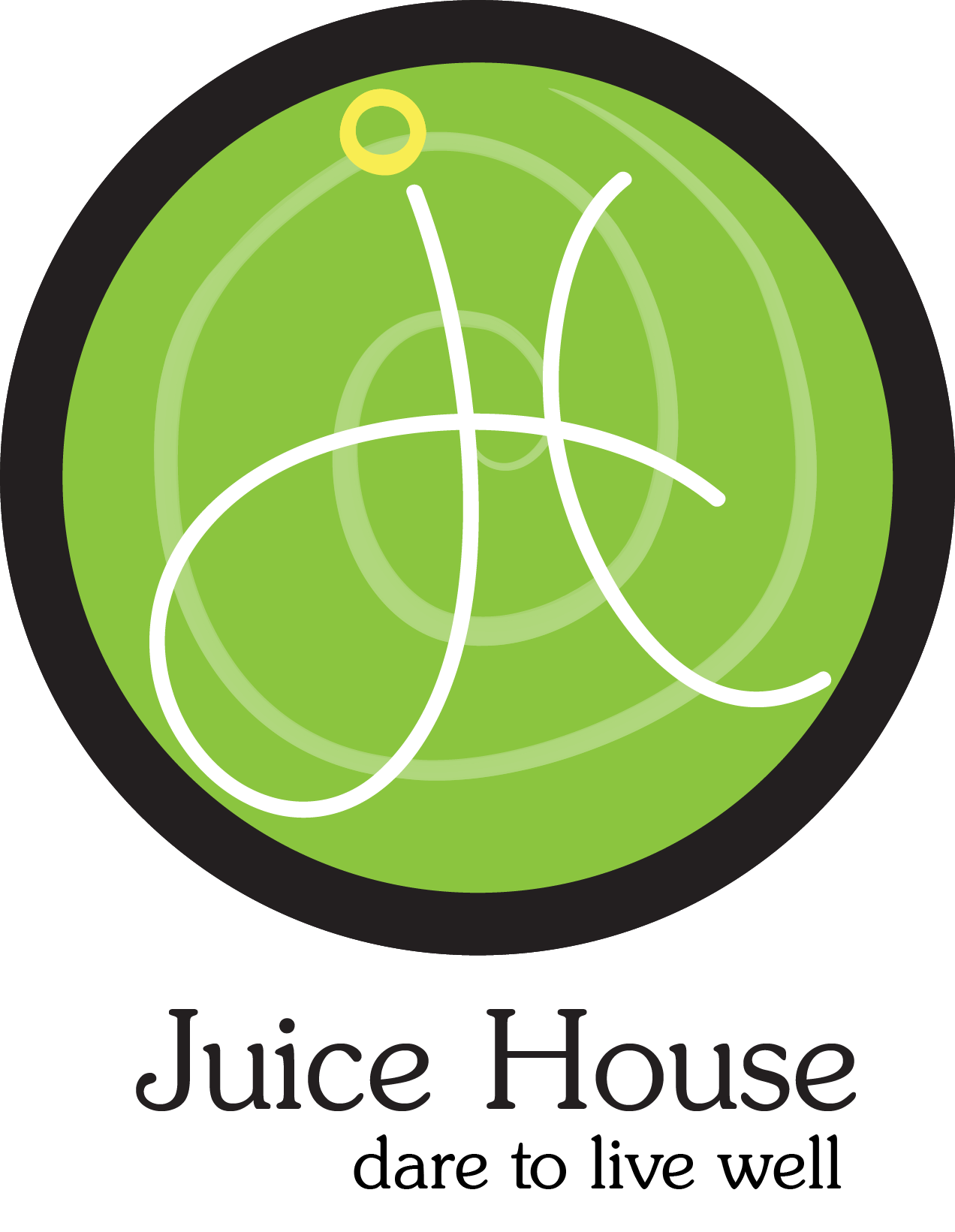Obesity has been on a steep rise nationally — in the last 60 years it has tripled among adults, and citizens categorized as overweight has risen tenfold. While these statistics are staggering, it only shows a piece of the larger picture; the increase is across the entire age spectrum and obesity is not limited to any one demographic of the population; all demographics are seeing the impact.
In a four-member panel as part of the 16th annual Dorothy Hussain Distinguished Lecture on the topic of obesity, panelists Jennifer DeVries, DNP, APRN, FNP-C; Sheri Desmond, APRN, CNP, MPH; Wendy Wexler, MD; and Special Assistant to the President for Community Engagement and Strategic Partnerships, University of Toledo Valerie Simmons-Walston, MA discussed the impacts and interventions at work to address obesity. The event was held on Oct. 3, 2023, in the Collier Building on the Health Science Campus of the University of Toledo and included recognition of the Hussain family whose support provides for the annual hosting of this free, public lecture.
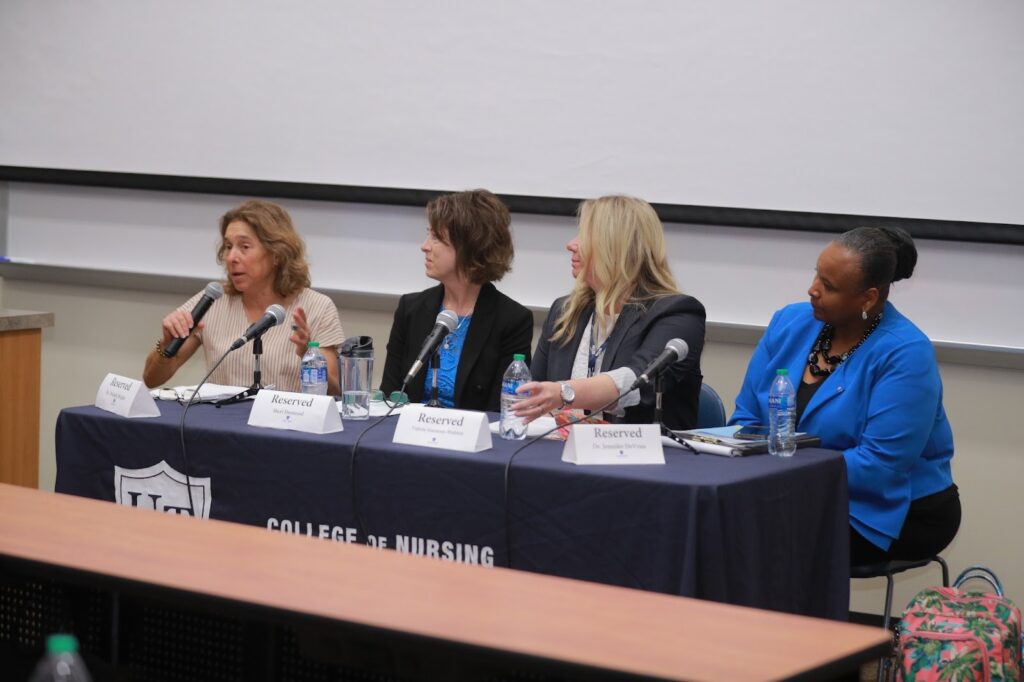
Dr. DeVries presented on the impact of obesity over the last decade as well as the complexities of factors that lead to the current state of our society.
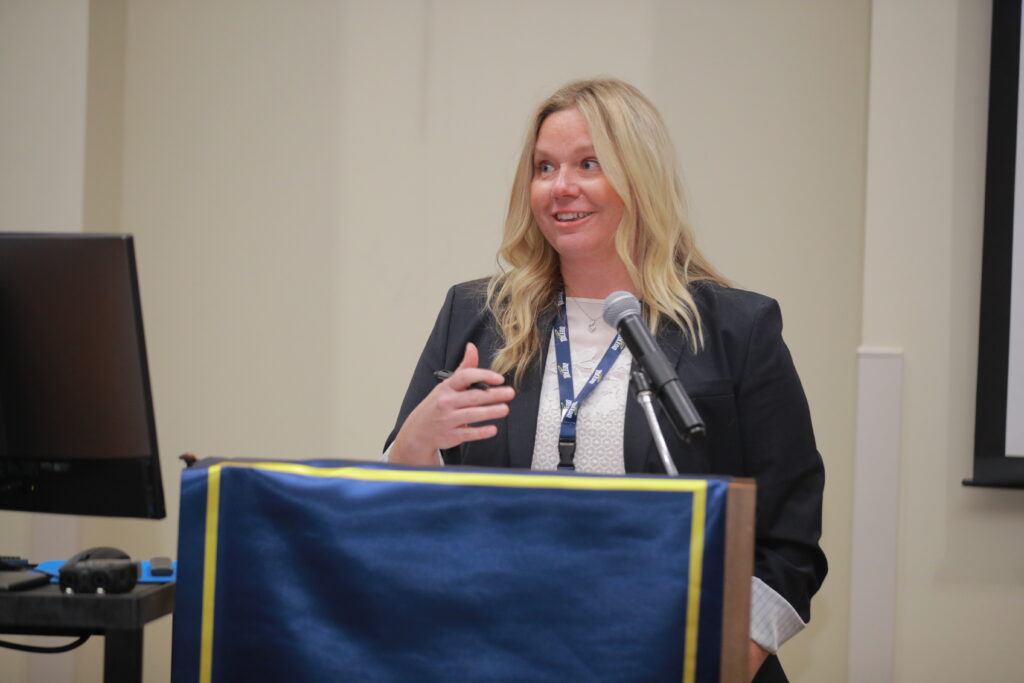
According to a recent study released by the Center for Disease Control, looking at data from 1999 – 2000 through 2017 – March 2020, U.S. obesity prevalence among adults rose from 30.5% to 41.9%. During the same years, the prevalence rose from 4.7% to 9.2% for those categorized as severe obesity.
In the same study, the prevalence of obesity in children and adolescents from 2017 to 2020 was 19.7 percent, affecting 14.7 million U.S. children and adolescents. Many factors have caused this increase.
“We are a task-oriented society, where we have focused on convenience over quality,” DeVries said. “Instead of moving our bodies and feeding ourselves healthy food, we are going the quickest, fastest, easiest route and we really need to be focusing on quality instead of quantity,” she said.
This observation was echoed across the panelists. According to Sheri Desmond, Nurse Practitioner at the Mercy Weight Management Center, there’s a fundamental shift in our human behavior to the detriment of our health, contributing to obesity.
“We are human doings instead of human beings — we’re always on the move, we’re multitasking, not really taking care of ourselves,” Desmond said.
And the impact is severe; she continued to reveal some of the complexities of how this lifestyle is contributing to the breakdown of other intricate parts of our bodies.
“We have a lot of processed foods, ultra-processed foods. This really affects not only … subcutaneous fat but the visceral fat as well,” she said. “And so, these processed foods … affect the visceral fat, we release hormones that change our biochemistry, and we have stress. We release cortisol, a stress hormone, that makes us put weight around the middle,” Desmond said.
The panelists expressed a need for education on the perceptions of food and activity, noting that obese children often become obese adults. For many of them, education begins in the early ages to help families understand the impacts from lifestyle choices.
Wendy Wexler, a Board-Certified Pediatrician with almost thirty years of experience in pediatrics, ADHD, weight management and eating disorders, sees family education as essential to addressing the lifestyle choices when they are young.
“… [O]ne of the challenges is the parents themselves never learned to be healthy and be active … [s]o I try to just get them to make small changes: one less dessert, one healthy apple in their lunch and no sugary drinks…” Wexler said.
For Wexler, that involves education at each visit.
“I think when in every annual visit you’re showing them their [child’s] growth chart curves, you’re showing them their [child’s] growth. I think when they can have something that they can measure and visualize that helps parents,” she said.
Helping parents to see and connect the change of growth for their child across the data: weight, height and body mass index (BMI), gives medical staff a place to begin the conversation on overall lifestyle and diet for their child when the first indicators toward obesity appear.
However, when the education is not there, the evidence shows the cost. To some, surgery is one of the remaining, complex options. Panelist Valerie Simmons-Walston shared her personal experience with the challenges of weight loss and her recent surgical process to help reduce her weight.
“[F]or the preparation, many people have to get clearances, like cardiology clearance, pulmonology clearance. They all get a psychiatric evaluation,” Simmons-Walston said. There are many stages before surgery can be scheduled.
Even after surgery, there are other key factors to take into consideration, such as following the new diet regimen carefully to avoid consequences.
“If you eat too fast, after you eat you will be uncomfortable. But I sat in my discomfort, and I don’t wanna feel like that, so I’m trying very, very hard to just abide by doctor’s instructions,” Simmons-Walston said.
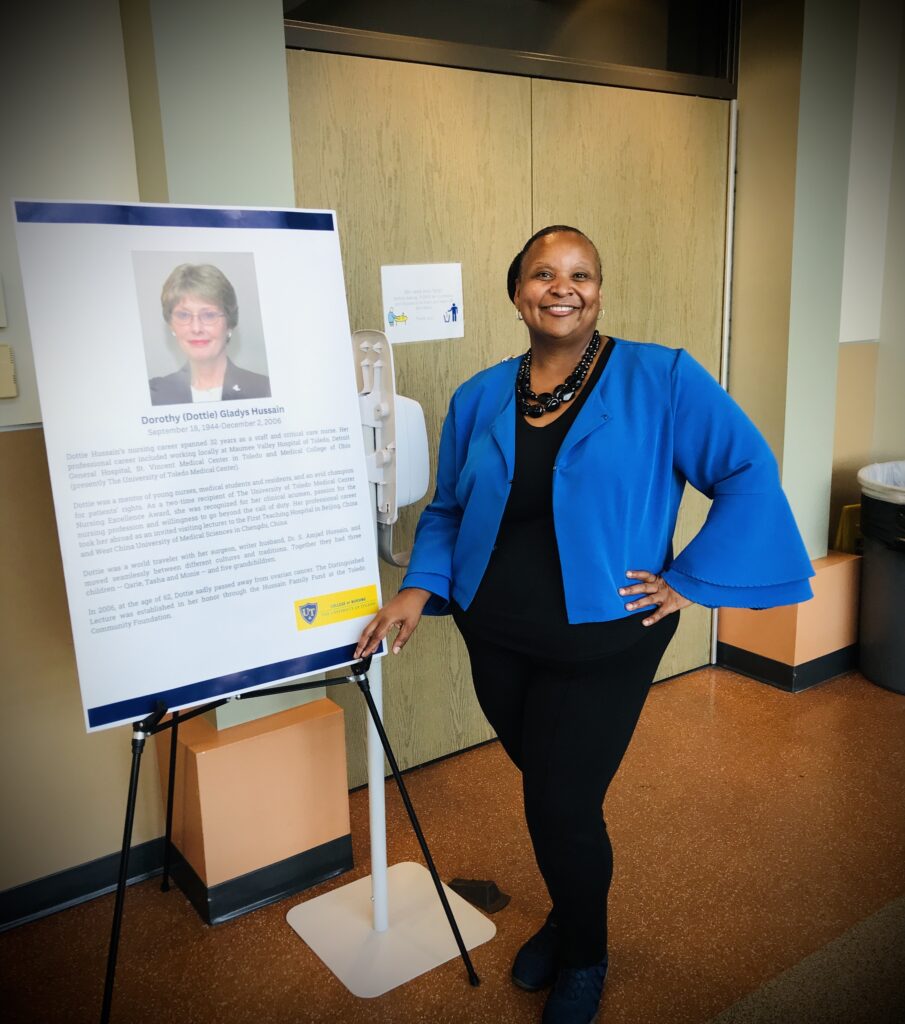
Ultimately, the panel concluded with the need to address obesity from multiple perspectives, there’s not one method that cures. However, the attitude towards food and diet plays a key part in the solution and especially a healthy community support system.
“I think even from a young age it is important to talk about emotions attached to eating, trying to teach our young people to feel their emotions and don’t try to fill whatever void is there with food,” Simmons-Walston said.
One of the main keys to success is community support, which was a recurring thread throughout the lecture. “You have to have a support that’s checking in on you, that’s important — having a group of trusted advisors that you can be transparent with,” Simmons-Walston said.
Practical implementation of topics highlighted in the panel, such as nutrition and lifestyle education and application, are all elements supported through Juice House, which offers a platform for students, staff, faculty and the community to collaborate and open new conversations on health and wellbeing in this region. We invite inspired doctors, nurses, medical practitioners, researchers and community members to join us.
++++
More about this lecture here.
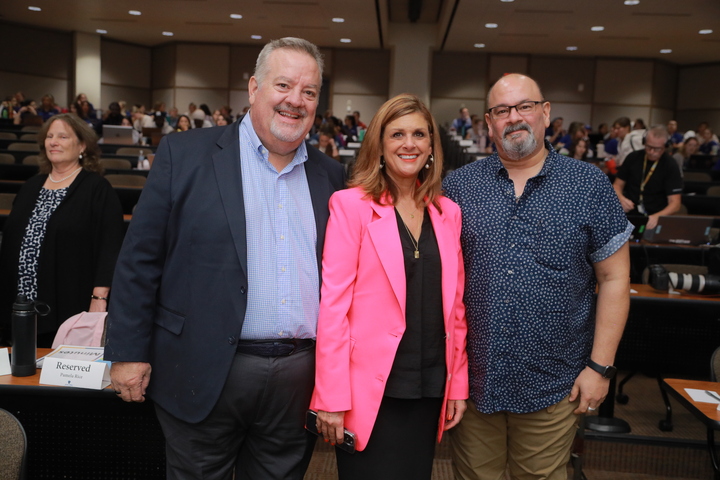
This free, public lecture, is named after the late Dorothy Gladys Hussain, who was a staff nurse and critical care nurse at the former Medical College of Ohio Hospital, with a career spanning more than thirty years who was also known for patient advocacy and championing patients’ rights. Her work extended overseas to First Teaching Hospital in Beijing, China and West China University of Medical Sciences in Chengdu, China.
Mrs. Hussain was the recipient of the Nursing Excellence Award at the University of Toledo Medical Center, leaving behind a legacy upon her passing in 2006 of ovarian cancer. This annual lectureship was founded in her honor through the Hussain Family Fund at the Toledo Community Foundation.
About The JuicePress
The JuicePress, a campus publication produced through Juice House, reports on these critical, local events. If you or someone you know would be interested in getting involved with Juice House, please visit us here: https://www.juicehouse.org/ or shoot an email to JuiceHouse@UToledo.edu.
We’re mobile! Check out our app, The Juice via the Apple App Store or Google Play to find out the latest on our events and happenings!
Dare to live well!


